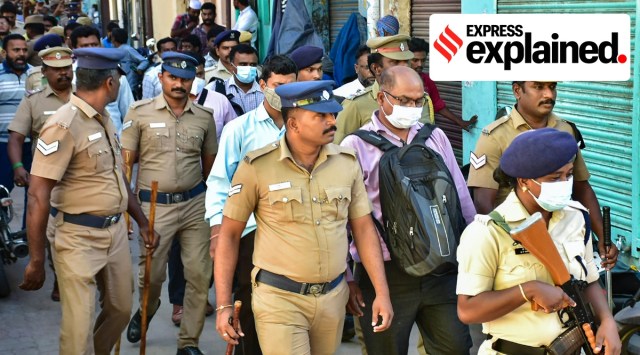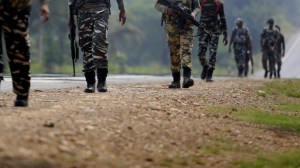The National Investigation Agency (NIA) and the Enforcement Directorate (ED) on Thursday conducted searches at the Popular Front of India’s offices (PFI) and houses of PFI state and district level leaders across multiple states over alleged involvement in terrorist activities.
The searches, based on allegations that members of PFI are involved in organising terror camps and encouraging youth to join terror activities, could also lead to a ban on the organisation under anti-terror laws.

What does a ‘ban’ on an organisation mean?
The Unlawful Activities Prevention Act gives powers to the government to declare an organisation an “unlawful association” or a “terrorist organisation”, which is often colloquially described as a “ban” on the organisations. Declaring an organisation a terrorist organisation has serious consequences in law, including criminalising its membership and the forfeiture of the property of the organisation.
Several resolutions of the United Nations Security Council starting from 1997 require member states to take action against certain terrorists and terrorist organisations, to freeze their assets and other economic resources, to prevent their entry into or the transit through their territory, and to prevent the direct or indirect supply, sale, or transfer of arms and ammunition to those individuals or entities listed in the Schedule.
And what is a “terrorist” organisation?
Section 2(m) of the UAPA defines “terrorist organisation” as an organisation listed in the Schedule to the UAPA, or an organisation operating under the same name as an organisation so listed in the Schedule.
Schedule 1 currently lists 42 organisations, including Hizb-Ul-Mujahideen, Babbar Khalsa International, Liberation Tigers of Tamil Eelam, among others as terrorist organisations.
Story continues below this ad
How is an organisation declared a terrorist organisation?
Under Section 35 of the UAPA, the central government has powers to declare an organisation a terrorist organisation “only if it believes that it is involved in terrorism”.
The Schedule can be amended by the government to add or remove organisations from the list. The law states that an organisation shall be deemed to be involved in terrorism
if it —
(a) commits or participates in acts of terrorism, or
(b) prepares for terrorism, or
(c) promotes or encourages terrorism, or
(d) is otherwise involved in terrorism.
What are the consequences of declaring an organisation a terrorist organisation?
Story continues below this ad
The two crucial consequences of being declared a terrorist organisation is that the funding of the organisation, and the association of individuals with the organisation are criminalised.
Section 38 of the UAPA requires a person who “associates himself, or professes to be associated, with a terrorist organisation with intention to further its activities, commits an offence relating to membership of a terrorist organisation” is punishable with imprisonment for a term not exceeding ten years.
However, such individuals are exempted from the provision if they have been members before the organisation was declared a terrorist organisation and did not take part in any activities of the organisation at any time during its inclusion in the Schedule.
Section 20 of the UAPA prescribes punishment for being member of terrorist gang or organisation. It states: “Any person who is a member of a terrorist gang or a terrorist organisation, which is involved in terrorist act, shall be punishable with imprisonment for a term which may extend to imprisonment for life, and shall also be liable to fine.”
Story continues below this ad
Section 21 prescribes punishment for individuals holding proceeds of terrorism with imprisonment for a term which may extend to imprisonment for life, and shall also be liable to fine.
The UAPA under Section 24A also provides for forfeiture of proceeds of terrorism. The law states that even if the person is not convicted for being associated with a terrorist organisation, “proceeds of terrorism” can be forfeited to the Central Government or the State Government.
What is the recourse in law available to a terrorist organisation?
An application can be made to the central government to remove an organisation from the Schedule by the organisation itself or any person affected by inclusion of the organisation in the Schedule as a terrorist organisation.
Story continues below this ad
A review committee is then appointed which is headed by a sitting or former judge of a High Court to “judicially review” the application. The organisation will be removed if the review committee “considers that the decision to reject was flawed when considered in the light of the principles applicable on an application for judicial review”.








































